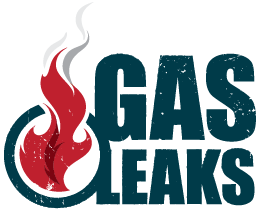
Fallout from Certified Disaster campaign continues as Project Canary reportedly shifts away from “gas certification”
One of the largest methane monitoring companies in the United States is reportedly backing off “certification” programs that allow the oil and gas industry to market methane gas as clean, sustainable or “responsibly sourced.”
Bloomberg News reports that Project Canary is changing its leadership and “shifting its business strategy amid questions about the role of so-called responsibly sourced gas.” The company will «focus more squarely on measuring methane leaks at oil and gas operations rather than pushing certifications that seek to attest that individual sites have lower-emission profiles,” according to Bloomberg’s reporting.
The shake-up follows the July launch of the Certified Disaster campaign by Earthworks, Oil Change International and Gas Leaks, which pointed out the greenwashing risks of “certified” gas schemes and successfully pressured the Department of Energy to refrain from setting a standard for “responsibly sourced” gas.
Earlier this year, Earthworks and Oil Change International documented examples of oil and gas drilling sites utilizing Project Canary monitors in Colorado that consistently failed to detect pollution. The report raised major questions about the validity of the work of third-party methane monitoring companies that are hired by the oil and gas industry and the focus on incremental emissions reductions over halting the expansion of the gas system and phasing out the use of gas.
The shake-up at Project Canary comes as the U.S. is leading international discussions aimed at defining the proper methods and standards for monitoring methane pollution from the oil and gas industry – standards that, if not carefully developed, could open the floodgates for gas exports. Methane is more than 80 times as potent a greenhouse gas than carbon dioxide, and studies show that oil and gas production leaks vast amounts of it into the atmosphere. When methane pollution is taken into account, “natural” gas is likely as bad as coal power in its contribution to the climate crisis.
Industry giants like bp and gas utilities such as Virginia Natural Gas, Washington Gas, Nicor and Xcel Energy are already marketing their use of “certified” gas and often charging their customers a premium. The industry is using the concept to justify the continued expansion of fracking, gas pipelines, buildings with gas appliances and gas export facilities that pollute the air and water in communities of color on the Gulf Coast. Climate scientists and energy experts like the International Energy Agency agree that avoiding the worst climate outcomes means halting the expansion of methane gas, including no new gas extraction as of 2021 and no new gas appliances sold by 2025. And while meeting emissions targets will require reducing methane emissions from existing oil and gas production, according to the IPCC, increasing or even maintaining current levels of production will generate carbon dioxide in excess of the remaining carbon budget to keep warming below 1.5°C and meet Paris Agreement targets.
“Project Canary’s shake-up signals that gas certification schemes are on shaky ground. The reality, which we ground-truthed in our investigation, is that these efforts are not climate solutions, they are tools for oil and gas companies to extend their social license. We need to clean up methane pollution now and the science on how to do that is clear: We must phase out the production of fossil fuels while advancing monitoring and measuring efforts,” said Josh Eisenfeld, Campaign and Communications Manager of Corporate Accountability at Earthworks.
“Project Canary’s shift away from ‘certified’ gas schemes sends a message to the oil and gas industry: action over greenwashing. Our investigation revealed deep flaws in the way Project Canary conducted its gas certification and promoted certified gas as a solution to oil and gas emissions. Now, the company and its customers can no longer maintain the charade. It is clear the primary strategy for reducing methane emissions is to reduce methane gas production. With the climate crisis worsening daily, we need the oil and gas industry to stop hiding behind certification schemes and start cleaning up and phasing out.” said Lorne Stockman, Research Co-Director at Oil Change International.
“The oil and gas industry shouldn’t be able to claim extra credit for complying with its legal obligation to address its methane pollution, which is harming peoples’ health and accelerating extreme weather disasters across the planet. Whether it’s called ‘certified’ or ‘sustainably sourced’ or ‘low-carbon,’ it’s all the same thing – a marketing ploy aimed at cleaning up the public image of ‘natural’ gas. It’s not enough for the industry to clean up its product, we need a plan to phase out the use of oil and gas and shift to clean energy instead,” said Caleb Heeringa, Campaign Director of Gas Leaks.


